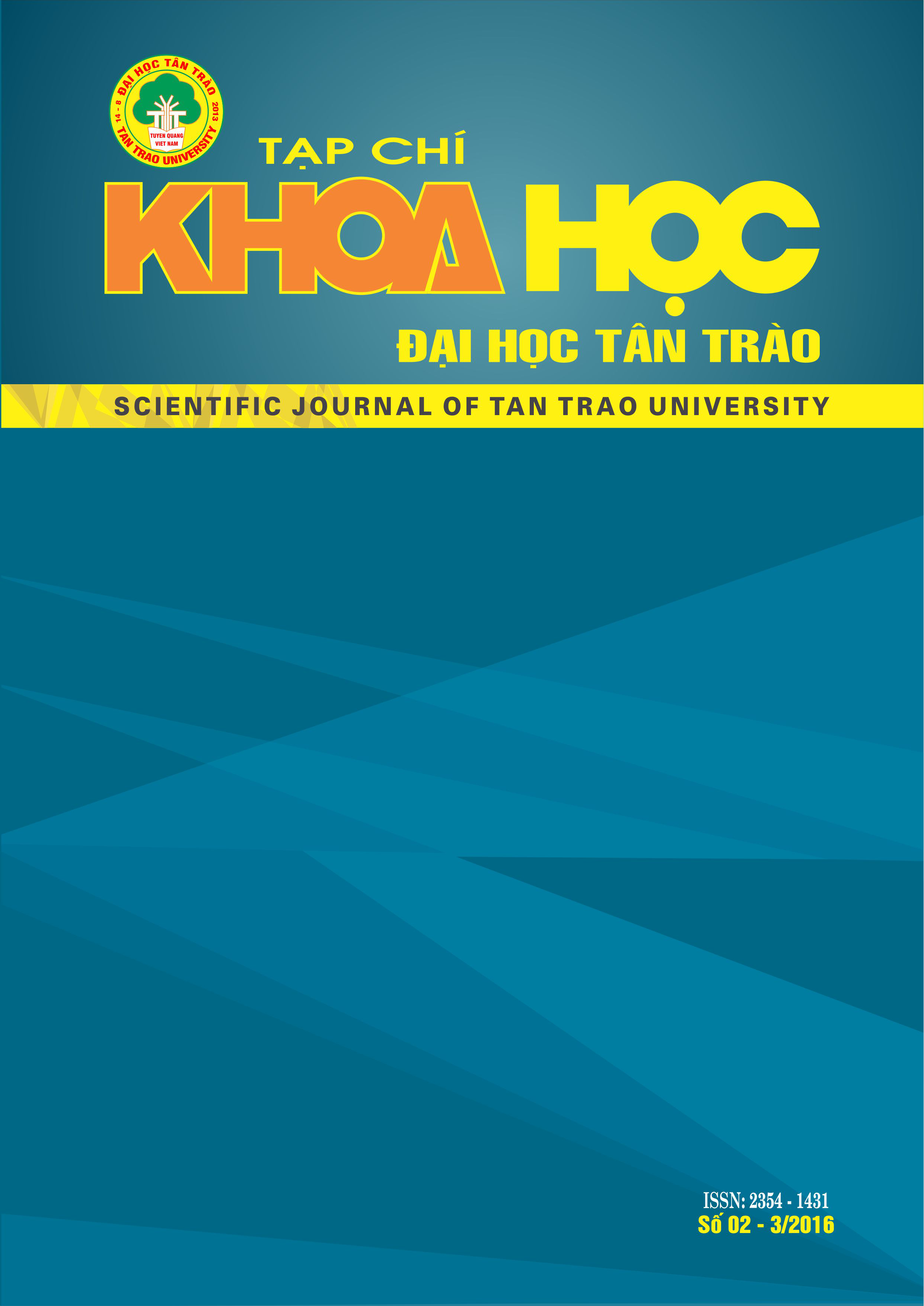THE INFLUENCES OF CONFUCIAN IDEOLOGY ON THE RELATIONSHIP BETWEEN TEACHING AND LEARNING AT HIGHER EDUCATION IN VIETNAM
DOI:
https://doi.org/10.51453/2354-1431/2016/87Keywords:
Confucian ideology; teaching and learning; teacher-student communicationAbstract
The study has examined contextual influences (Confucian influences) on the relationship between adult teaching and learning in Vietnam. A general picture of Confucian philosophy in Vietnam has been highlighted with regard to the impact of Confucian on regions in general and on educational field in particular. Importantly, the paper has also focused on level of Confucian impacts regarding to adult teaching and learning activities, and especially impacts that inhibit creativeness and competency of teacher and students’ activities. Finally, the paper has emphasized on what Vietnamese educators and teachers have tried and should do to modify the impact of
Confucian on the relationship between adult teaching and learning.
Downloads
References
1. Ban, K. T.(2000) The impacts of Confucian on learning environment. Hanoi Education University Publisher.
2. Bruner, J.(1996) The culture of education. Harvard University Press, Cambridge Mass.
3. Cuu, N. L. (2001). Communication in classroom. Vietnamese Educational Newspaper.
4. Chen, G.M & Chung, J. (1994). The impact of Confucianism on organizational communication. Communication Quarterly. University Part. 42 (2), pp 93-112.
5. Driscoll, M.P. (1994). Psychology of Learning for Instruction. Needham Heights: Allyn & Bacon.
6. Ellis, G., 1995. Teaching and learning styles in Vietnam: Lessons for Australian educators. Journal of Vietnamese studies, 8, pp 9-16.
7. Darling, L. H. & Bransford, J.(2005) Preparing Teachers for a Changing World: What Teachers Should Learn and Be Able to Do. Jossey-Bass.
8. Fry, H., Ketteridge, S. & Marshall. (1999) Understanding student learning. Development of practice.
9. Hwang, K. K. (1986). The psychology of the Chinese people. HK: Oxford University Press.
10. McLaren, M. (1998). Interpreting culture differences. Peter Francis publisher. UK
11. Merriam, S.B.; Caffarella, R.S. & Baumgartner, L.M. (2007) Learning in Adulthood. John Wiley & Sons, Inc.
12. Hofstede, G. (1991). Cultures and Organizations: Software of the mind. HarperCollinsPublishers. London.
13. Irwin, H. (1996). Communicating with Asia: Understanding People and Customs. Allen & Unwin. NSW, Australia.
14. Kramsch, C. & Sullivan, P. (1996). Appropriate pedagogy. ELT journal, (50), 199-212
15. Nelson (1995). Cultural differences in learning styles. In Reid, J (Ed.), Learning styles in the ESL/EFL classroom. Boston: Heinle & Heinle.
16. Nguyen, X. T. (1994). Education in Vietnam: an overview. In Nguyen Xuan Thu (Ed.).
17. Nguyen, K. D. (1999). The teacher training quality. The People. Vietnam: The People newspaper.
18. Onsman. (1991: 51&52) Asignment of Instructional Strategies to Adult Learning Principle.
19. Print, M. (1993) Curriculum Development and Design. Sydney: Allen and Unwin.
20. Phu, N. M.(2001) A sympathy towards students. Hanoi National University Publisher
21. Sullivan, K. (1994). Understanding ways. London: Hale & Ironmoger.
22. Turner, R. B.(2005) Expert Teaching: Knowledge and Pedagogy to Lead the Profession. London. David Fulton Publisher.
23. Tran, T. N. M. & Nguyen, T. T. H. & Le, L. L. (1988). Vietnamese Language & Cultures. Australia: Vietnamese Community in Australia.
24. Vu, V. T. (1995). Some cultural features of Vietnamese life and teacher education. In Barthel & Ho, V. (Eds.) & Alex & Dinh, Q. T.(trans). Intercultural interaction and development: converging perspectives conferences proceedings. Sydney: University of technology.
25. Wei, T. (1977). Vietnamese refugee students: A handbook for personnel. Cambridge: National Assessment & Dissemination center.
Downloads
Published
How to Cite
Issue
Section
License

This work is licensed under a Creative Commons Attribution-ShareAlike 4.0 International License.
All articles published in SJTTU are licensed under a Creative Commons Attribution-ShareAlike 4.0 International (CC BY-SA) license. This means anyone is free to copy, transform, or redistribute articles for any lawful purpose in any medium, provided they give appropriate attribution to the original author(s) and SJTTU, link to the license, indicate if changes were made, and redistribute any derivative work under the same license.
Copyright on articles is retained by the respective author(s), without restrictions. A non-exclusive license is granted to SJTTU to publish the article and identify itself as its original publisher, along with the commercial right to include the article in a hardcopy issue for sale to libraries and individuals.
Although the conditions of the CC BY-SA license don't apply to authors (as the copyright holder of your article, you have no restrictions on your rights), by submitting to SJTTU, authors recognize the rights of readers, and must grant any third party the right to use their article to the extent provided by the license.


